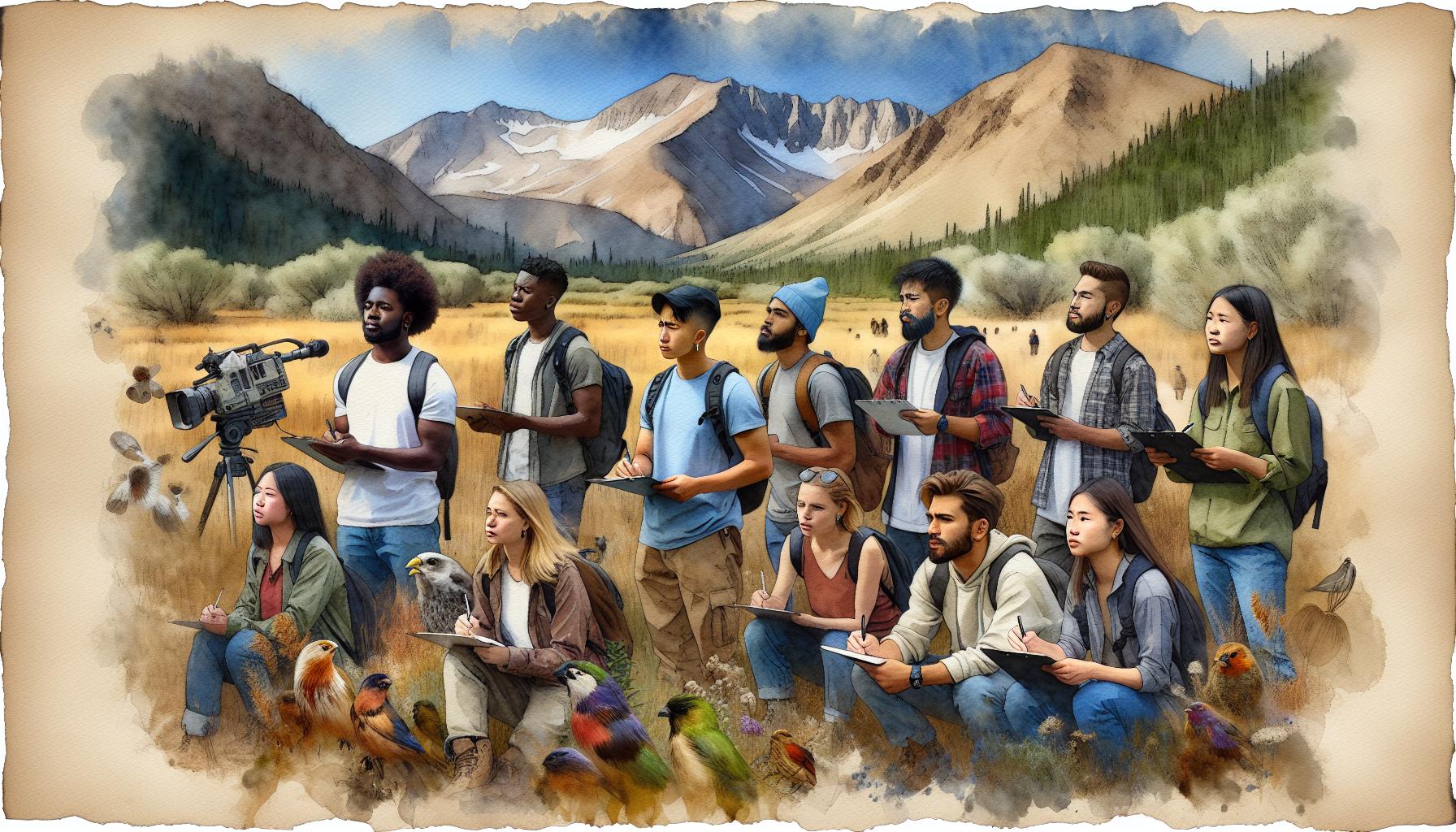& Universities

If you’re passionate about animals and dreaming of a career that lets you work up close with wildlife, Colorado’s zoology programs might just be your perfect match. Nestled in the heart of the Rockies, Colorado offers a unique blend of rigorous academic training and hands-on experiences that are ideal for animal lovers.
From state-of-the-art research facilities to partnerships with renowned conservation organizations, these programs are designed to give you the tools you need to thrive in the field of zoology. Whether you’re aiming to specialize in marine biology, wildlife conservation, or veterinary science, you’ll find a program tailored to your interests and career goals. Let’s explore what makes Colorado a prime destination for aspiring zoologists.
Top Zoology Programs in Colorado Universities
Colorado’s universities offer renowned zoology programs that stand out for their comprehensive curriculum, experienced faculty, and substantial research opportunities designed to prepare you for a successful career in animal sciences.
Colorado State University
Colorado State University (CSU) offers a comprehensive zoology program housed within the Department of Biology. The program is accredited and features a strong foundation in animal biology, ecology, evolution, and behavior. Students engage in hands-on research opportunities, including work in the field and with laboratory animals, and have access to the university’s renowned research centers like the Animal Reproduction and Biotechnology Laboratory. The program typically lasts 4 years for undergraduates, and offers flexibility with concentrations in ecology, evolutionary biology, and molecular biology.
Estimated annual tuition for in-state students is approximately $15,000, while out-of-state students can expect to pay around $31,000. Additional costs for housing, books, and fees should be considered as well.
CSU is known for its strong emphasis on research and community involvement, making it ideal for animal lovers who want to get hands-on experience. The university’s partnerships with local zoos, wildlife organizations, and conservation efforts provide valuable fieldwork opportunities. Students benefit from a close-knit community and strong mentorship from faculty members who are leaders in the field of zoology.
University of Denver
The University of Denver (DU) offers an undergraduate program in biology with a concentration in zoology. This program is unique due to its interdisciplinary approach, blending zoology with environmental science, chemistry, and physics. Students have the opportunity to participate in collaborative research, both in the lab and in the field, especially through DU’s partnerships with local wildlife research centers. The program duration is typically 4 years.
The estimated cost for in-state and out-of-state students is approximately $54,000 per year, including tuition, fees, and housing.
DU stands out with its location in Denver, giving students access to world-class museums, zoos, and wildlife centers. The program’s emphasis on sustainability and conservation makes it ideal for students interested in the intersection of animal biology and environmental issues. DU also offers a strong alumni network and internship opportunities with conservation organizations.
University of Colorado Boulder
The University of Colorado Boulder (CU Boulder) offers a highly respected zoology program through its Department of Ecology and Evolutionary Biology. The program is known for its emphasis on ecological and evolutionary perspectives, and students can tailor their studies to their specific interests, from marine biology to animal behavior. CU Boulder provides extensive fieldwork opportunities and has research collaborations with nearby national parks and wildlife refuges. The program duration is typically 4 years.
The estimated annual tuition for in-state students is $14,000, while out-of-state students pay about $38,000 per year.
CU Boulder is one of the top schools for zoology due to its cutting-edge research facilities, close proximity to nature reserves, and strong focus on both theoretical and practical learning. The program’s interdisciplinary approach allows students to engage in diverse areas of animal science, making it ideal for students interested in broader environmental issues.
About Ranking:
Our ranking methodology for the best zoology programs in Colorado focuses on several key factors to ensure that prospective students can make well-informed decisions. These factors include program cost, accreditation, online flexibility, and faculty expertise. We prioritize programs that provide a combination of academic excellence and value, ensuring that students receive a high-quality education without breaking the bank.
Cost is a crucial consideration for many students, so we evaluate the tuition fees of each program to identify affordable options. Additionally, we consider the availability of financial aid, scholarships, and other funding opportunities. Accreditation is another important factor, as it ensures the program meets national educational standards, providing students with a recognized and respected degree upon graduation.
For students seeking flexible learning options, we also assess the availability of online or hybrid programs, which allow for greater convenience and accessibility. Lastly, faculty expertise plays a key role in the ranking, as experienced and knowledgeable professors contribute to a robust and comprehensive learning experience.
By combining these factors, we are able to present a ranking that highlights the best zoology programs in Colorado, tailored to meet the needs of a variety of students, from those looking for affordability to those prioritizing flexibility or faculty experience.
Conclusion:
Choosing the right zoology program is essential for setting the foundation for a successful career in the animal sciences. With numerous options available in Colorado, students must carefully consider their individual career goals, financial situation, and learning preferences. Some may prioritize affordability, while others may focus on faculty expertise or the flexibility of online learning options.
The right program can help students develop the skills and knowledge needed to thrive in zoology-related fields, whether that be in research, wildlife conservation, or animal care. It’s important to thoroughly research each program, attend informational sessions, and reach out to admissions departments for more information about specific course offerings and career support.
We encourage students to explore the various options available and connect with program representatives to find the best fit for their unique needs and aspirations. Whether you are just starting your zoology journey or looking to advance your education, selecting the right program is crucial for achieving long-term career success.



